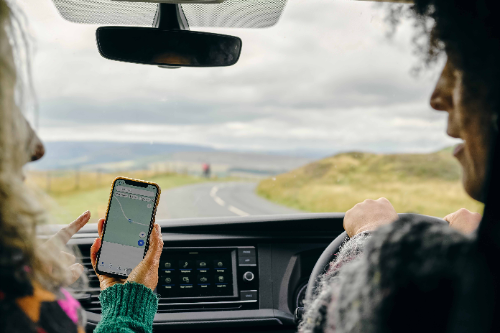Everyday collection of your location data
A world where people relied on a physical map – or even a sense of direction – to find a destination seems strange today. Navigation apps have revolutionised the way people travel, and now the future seems closer than ever (and quicker by four minutes if you take a right turn here).
 With one billion monthly active users, the Google Maps app is embedded in people’s lives – directing them on their commute, to their friends’ and families’ homes, and to the top-rated restaurants abroad. For many, using an app for directions has become as ubiquitous as paying for goods using a contactless card or video-calling a friend.
With one billion monthly active users, the Google Maps app is embedded in people’s lives – directing them on their commute, to their friends’ and families’ homes, and to the top-rated restaurants abroad. For many, using an app for directions has become as ubiquitous as paying for goods using a contactless card or video-calling a friend.
People may not realise just how much information these apps can collect – thanks to your location data, companies know where you were last week, where you’re heading today and where you plan to visit on that holiday next month.
Previously, Google stored all this information about where people have been remotely in the cloud – which meant that this data could be handed over to the police and other law enforcement agencies if requested. Now, it is changing the way it handles people’s location data, which could improve people’s privacy. Instead of tying all of this information to your Google account, it will be saved locally on your phone. The tech giant has also started automatically deleting visits to potentially sensitive locations from people’s location histories, such as abortion clinics or domestic violence shelters.